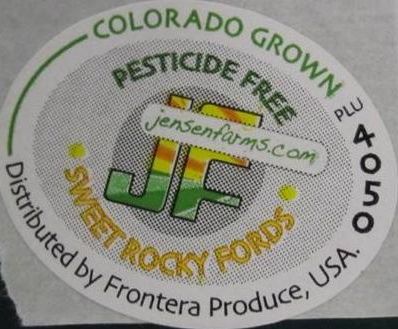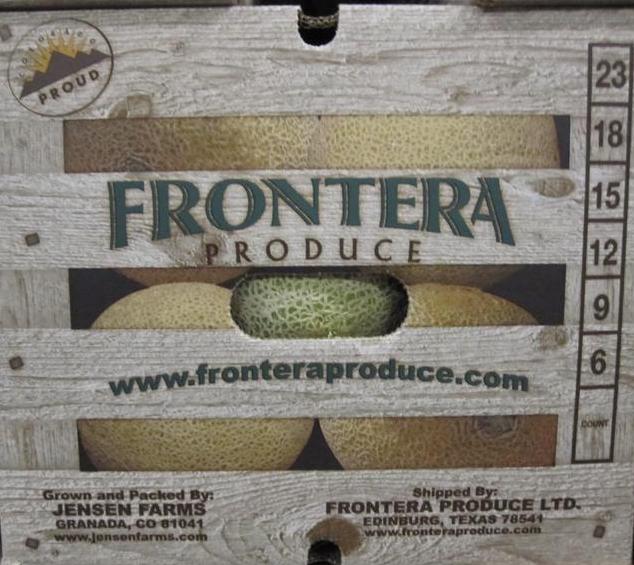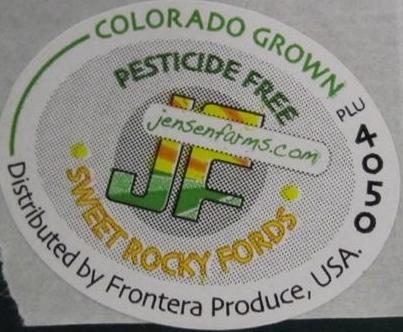A couple of weeks ago I left my cozy bubble of Raleigh and travelled to Wayne County NC for an evening talk at the Farm-City Banquet. As I was driving I thought about Doug and Gord Surgeoner’s mentorship – both instilled the importance of engaging with real people around issues and chatting over dinners.
Research and extension activities need grounding in reality.
The morning of the event I wasn’t entirely sure what to talk about – so I asked Schaffner for input during a podcast recording. He suggested ‘A Tale of Two Outbreaks’ – comparing Jensen Farms to PCA. Both tragic outbreaks, both resulting in criminal charges. One was due to an egregious disregard for public health. The other seemed to be a couple of folks who meant well but didn’t quite get microbiology.
Be the bug.
For the next talk I’m gonna add in ConAgra’s Peter Pan/Salmonella outbreak as part of the story.
The Associated Press reports that ConAgra pled guilty and has agreed to pay $11.2 million in fines and other fees as a result of an outbreak a decade ago.
ConAgra admitted to a single misdemeanor count of shipping adulterated food. No individuals at the leading food conglomerate faced any charges in the 2006 outbreak, which sickened at least 625 people in 47 states.
Disease detectives traced the salmonella to a plant in rural Sylvester, Georgia, that produced peanut butter for ConAgra under the Peter Pan label and the Great Value brand sold at Wal-Mart. In 2007 the company recalled all the peanut butter it had sold since 2004.
Leo Knowles, president of ConAgra Grocery Products, offered no testimony as he entered the misdemeanor plea Tuesday on behalf of the Chicago-based corporation’s subsidiary.
“It made a lot of people sick,” federal prosecutor Graham Thorpe said Tuesday as he described ConAgra’s decision to continue shipments from the Georgia plant in late 2006, before corrective actions were completed, despite lab tests that had twice detected salmonella in samples.
“The industry has taken notice of this prosecution,” Thorpe added.
Though the Justice Department called $8 million the heftiest criminal fine ever imposed in a U.S. food safety case, it represents just one-tenth of one percent of ConAgra’s current $8 billion market capitalization. The company also will pay $3.2 million in cash forfeitures to the federal government.
ConAgra said it didn’t know peanut butter was contaminated with salmonella before it was shipped. However, the plea agreement documents noted that ConAgra knew peanut butter made in Georgia had twice tested positive for salmonella in 2004. Problems weren’t all fixed by the time of the outbreak.
The judge noted that others had already received cash from ConAgra in civil settlements, which he said totaled $36 million to 6,810 people.
About 2,000 of them were represented by Bill Marler, a Seattle-based attorney who specializes in food-safety cases. He said the case shows corporations can be prosecuted even when there’s no evidence of intentional criminality. The misdemeanor charge, he said, required only that ConAgra shipped the contaminated food.
“Companies are very concerned, they’re very worried,” Marler said. “They’re very interested in knowing: How can they charge us with a crime even if we don’t mean to do it? People are paying attention to that and hopefully it’s going to drive positive food behavior.”
The folks in the food and agriculture world in Wayne County seemed to pay attention.






.jpg) was harvested and shipped. This proved to be important in tracking the product to customers in our database because we had records of where each pallet came from and where Jensen Farms shipped it.
was harvested and shipped. This proved to be important in tracking the product to customers in our database because we had records of where each pallet came from and where Jensen Farms shipped it..jpg) saw or touched the product were drawn into litigation based on association or something other than actual wrong-doing. It is an unfortunate reality.
saw or touched the product were drawn into litigation based on association or something other than actual wrong-doing. It is an unfortunate reality. in 2008 – 24 dead.
in 2008 – 24 dead.
.jpg)

 Rocky Ford growing area, have not been linked to this outbreak.
Rocky Ford growing area, have not been linked to this outbreak.
.jpg) (1), New Mexico (4), Oklahoma (1), Texas (2), and West Virginia (1). Two deaths have been reported, one in Colorado and one in New Mexico.
(1), New Mexico (4), Oklahoma (1), Texas (2), and West Virginia (1). Two deaths have been reported, one in Colorado and one in New Mexico.